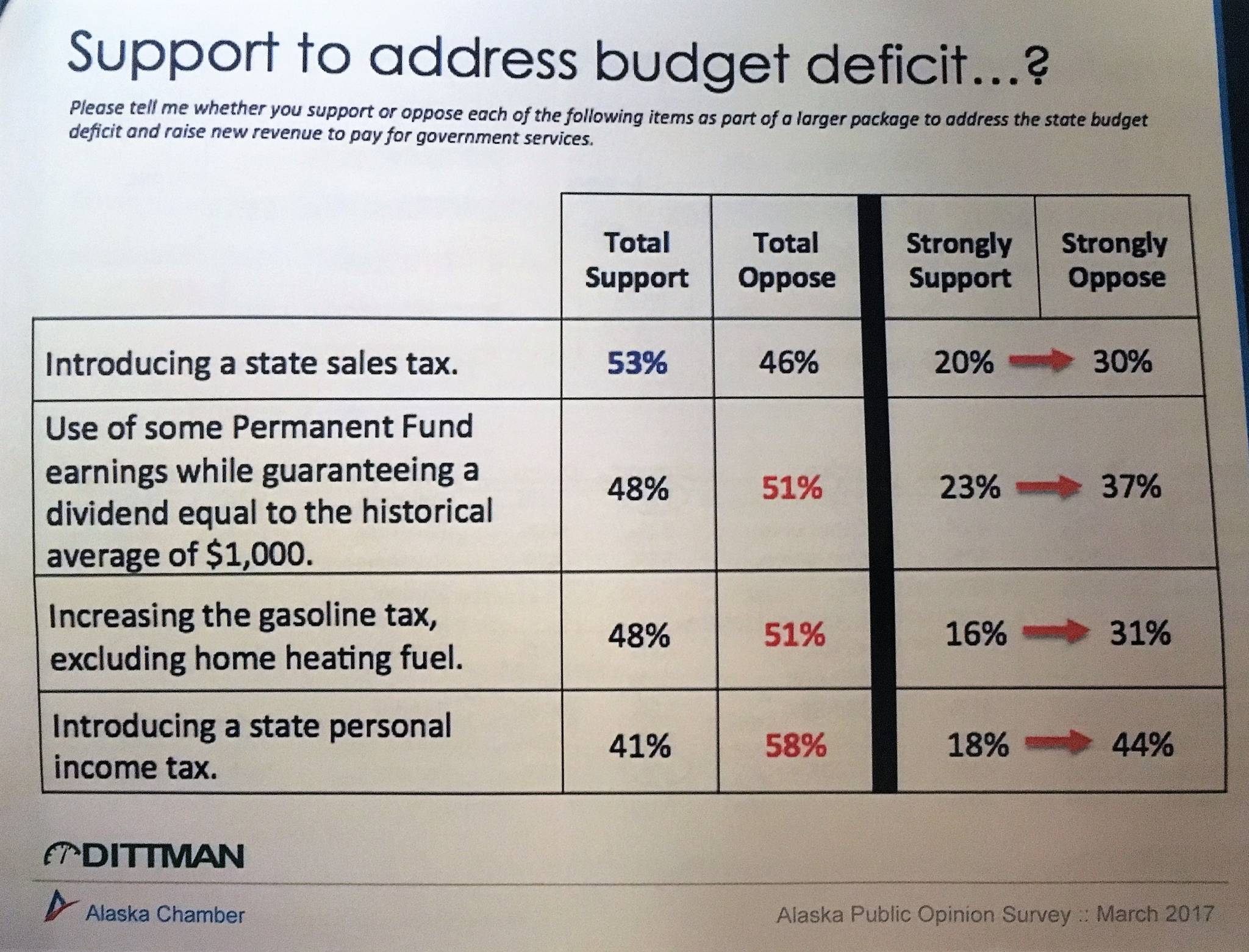A new poll funded by the Alaska Chamber of Commerce has found Alaskans deeply divided on proposals to fix the state’s $2.7 billion annual deficit.
The poll, conducted by Dittman Research between Feb. 21 and March 1, found 51 percent of Alaskans opposed to using the investment earnings of the Alaska Permanent Fund. The Alaska Senate has approved such a plan, Senate Bill 26. Forty-eight percent of Alaskans support the idea; the margin was within the range of error.
Alaskans are also divided 48-51 on a proposal to raise the state’s gasoline tax.
Fifty-three percent of Alaskans support a state sales tax, the poll found, and only 41 percent support a state income tax.
Curtis Thayer, president and CEO of the Chamber, presented the poll results at the weekly meeting of the Juneau Chamber of Commerce on Thursday at the Hangar on the Wharf Ballroom.
“There’s no silver bullet whatsoever,” Thayer said.
The results of the poll, which was conducted in early March and included 808 Alaskans statewide, have not been previously released.
The Chamber has conducted its “Alaska Public Opinion Survey” each year since 2015, and the latest edition finds less appetite among Alaskans for any fix to the state deficit.
Support for the Permanent Fund plan, which is the core of most deficit-fixing proposals in the Legislature, has declined from 56 percent to 48 percent between 2016 and 2017, the Chamber found.
Support for a statewide sales tax fell from 58 percent to 53 percent during the same period.
The gasoline tax was the only proposal that gained support, rising from 46 to 48 percent.
The state Chamber has supported the Senate’s action on SB 26 and advocates for greater state budget cuts to erase the rest of the deficit, Thayer said.
According to figures from the nonpartisan Legislative Finance Division, SB 26 would reduce the state deficit from $2.7 billion to $820 million per year and cut the annual Permanent Fund Dividend to $1,000. The Senate intends to erase a portion of the remaining deficit with budget cuts.
The majority in the House has proposed a Permanent Fund bill as well. House Bill 115 includes a smaller draw from the Permanent Fund than does the Senate’s idea, and it includes an income tax to further reduce the deficit.
The Chamber poll also indicated support for oil and gas drilling in the Arctic National Wildlife Refuge has been falling among Alaskans, even though a large majority endorse the idea.
The poll found 67 percent of Alaskans support such drilling and 31 percent oppose it. Last year, 72 percent of Alaskans supported drilling in ANWR.
Support for drilling in the Arctic Ocean offshore remains high. Sixty-nine percent of Alaskans support it, the poll found. That’s mostly unchanged from 70 percent last year.
• Contact reporter James Brooks at james.k.brooks@juneauempire.com or call 419-7732.

